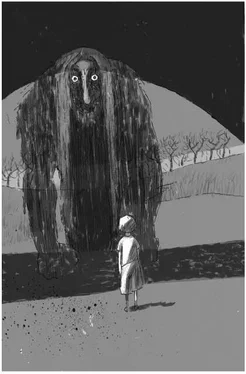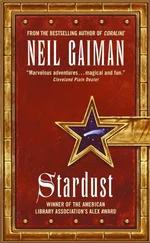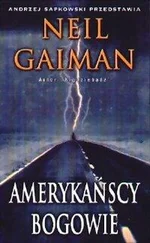A business like Abanazer Bolger’s brought in strange people, but the boy who came in that morning was one of the strangest Abanazer could remember in a lifetime of cheating strange people out of their valuables. He looked to be about seven years old, and dressed in his grandfather’s clothes. He smelled like a shed. His feet were bare. His hair was long and shaggy, and he looked extremely grave. His hands were deep in the pockets of a dusty brown jacket, but even with the hands out of sight, Abanazer could see that something was clutched extremely tightly—protectively—in the boy’s right hand.
“Excuse me,” said the boy.
“Aye, aye, Sonny Jim,” said Abanazer Bolger warily. Kids, he thought. They’ve nicked something, or they’re trying to sell their toys. Whichever it was, he usually said no. Buy stolen property from a kid, and next thing you knew you’d have an enraged adult accusing you of having given little Johnnie or Matilda a tenner for their wedding ring. More trouble than they was worth, kids.
“I need something for a friend of mine,” said the boy. “And I thought maybe you could buy something I’ve got.”
“I don’t buy stuff from kids,” said Abanazer Bolger flatly.
Bod took his hand out of his pocket and put the brooch down on the grimy counter top. Bolger glanced at it, then he looked at it. He removed his spectacles. He took an eyepiece from the counter top and he screwed it into his eye. He turned on a little light on the counter and examined the brooch through the eyeglass. “Snakestone?” he said, to himself, not to the boy. Then he took the eyepiece out, replaced his glasses, and fixed the boy with a sour and suspicious look.
“Where did you get this?” Abanazer Bolger asked.
Bod said, “Do you want to buy it?”
“You stole it. You’ve nicked this from a museum or somewhere, didn’t you?”
“No,” said Bod flatly. “Are you going to buy it, or shall I go and find somebody who will?”
Abanazer Bolger’s sour mood changed then. Suddenly he was all affability. He smiled broadly. “I’m sorry,” he said. “It’s just you don’t see many pieces like this. Not in a shop like this. Not outside of a museum. But I would certainly like it. Tell you what. Why don’t we sit down over tea and biscuits—I’ve got a packet of chocolate chip cookies in the back room—and decide how much something like this is worth? Eh?”
Bod was relieved that the man was finally being friendly. “I need enough to buy a stone,” he said. “A headstone for a friend of mine. Well, she’s not really my friend. Just someone I know. I think she helped make my leg better, you see.”
Abanazer Bolger, paying little attention to the boy’s prattle, led him behind the counter, and opened the door to the storeroom, a windowless little space every inch of which was crammed high with teetering cardboard boxes, each filled with junk. There was a safe in there, in the corner, a big old one. There was a box filled with violins, an accumulation of stuffed dead animals, chairs without seats, books and prints.
There was a small desk beside the door, and Abanazer Bolger pulled up the only chair, and sat down, letting Bod stand. Abanazer rummaged in a drawer, in which Bod could see a half-empty bottle of whiskey, and pulled out an almost-finished packet of chocolate chip cookies, and he offered one to the boy; he turned on the desk light, looked at the brooch again, the swirls of red and orange in the stone, and he examined the black metal band that encircled it, suppressing a little shiver at the expression on the heads of the snake things. “This is old,” he said. “It’s—” priceless , he thought, “—probably not really worth much, but you never know.” Bod’s face fell. Abanazer Bolger tried to look reassuring. “I just need to be sure that it’s not stolen, though, before I can give you a penny. Did you take it from your mum’s dresser? Nick it from a museum? You can tell me. I’ll not get you into trouble. I just need to know.”
Bod shook his head. He munched on his cookie.
“Then where did you get it?”
Bod said nothing.
Abanazer Bolger did not want to put down the brooch, but he pushed it across the desk to the boy. “If you can’t tell me,” he said, “you’d better take it back. There has to be trust on both sides, after all. Nice doing business with you. Sorry it couldn’t go any further.”
Bod looked worried. Then he said, “I found it in an old grave. But I can’t say where.” And then he stopped, because naked greed and excitement had replaced the friendliness on Abanazer Bolger’s face.
“And there’s more like this there?”
Bod said, “If you don’t want to buy it, I’ll find someone else. Thank you for the biscuit.”
Bolger said, “You’re in a hurry, eh? Mum and Dad waiting for you, I expect?”
The boy shook his head, then wished he had nodded.
“Nobody waiting. Good.” Abanazer Bolger closed his hands around the brooch. “Now, you tell me exactly where you found this. Eh?”
“I don’t remember,” said Bod.
“Too late for that,” said Abanazer Bolger. “Suppose you have a serious think for a bit about where it came from. Then, when you’ve thought, we’ll have a little chat, and you’ll tell me.”
He got up, and walked out of the room, closing the door behind him. He locked it, with a large metal key.
He opened his hand, and looked at the brooch and smiled, hungrily.
There was a ding from the bell above the shop door, to let him know someone had entered, and he looked up guiltily, but there was nobody there. The door was slightly ajar though, so Bolger pushed it shut, and then for good measure, he turned around the sign in the window, so it said CLOSED. He pushed the bolt shut. Didn’t want any busybodies turning up today.
The autumn day had turned from sunny to gray, and a light patter of rain ran down the grubby shop window.
Abanazer Bolger picked up the telephone from the counter and pushed at the buttons with fingers that barely shook.
“Paydirt, Tom,” he said. “Get over here, soon as you can.”
Bod realized that he was trapped when he heard the lock turn in the door. He pulled on the door, but it held fast. He felt stupid for having been lured inside, foolish for not trusting his first impulses to get as far away from the sour-faced man as possible. He had broken all the rules of the graveyard, and everything had gone wrong. What would Silas say? Or the Owens? He could feel himself beginning to panic, and he suppressed it, pushing the worry back down inside him. It would all be good. He knew that. Of course, he needed to get out….
He examined the room he was trapped in. It was little more than a storeroom with a desk in it. The only entrance was the door.
He opened the desk drawer, finding nothing but small pots of paint (used for brightening up antiques) and a paintbrush. He wondered if he would be able to throw paint in the man’s face and blind him for long enough to escape. He opened the top of a pot of paint and dipped in his finger.
“What’re you doin’?” asked a voice close to his ear.
“Nothing,” said Bod, screwing the top on the paintpot and dropping it into one of the jacket’s enormous pockets.
Liza Hempstock looked at him, unimpressed. “Why are you in here?” she asked. “And who’s the old bag of lard out there?”
“It’s his shop. I was trying to sell him something.”
“Why?”
“None of your beeswax.”
She sniffed. “Well,” she said, “you should get on back to the graveyard.”
“I can’t. He’s locked me in.”
“Course you can. Just slip through the wall—”
He shook his head. “I can’t. I can only do it at home because they gave me the freedom of the graveyard when I was a baby.” He looked up at her, under the electric light. It was hard to see her properly, but Bod had spent his life talking to dead people. “Anyway, what are you doing here? What are you doing out from the graveyard? It’s daytime. And you’re not like Silas. You’re meant to stay in the graveyard.”
Читать дальше









